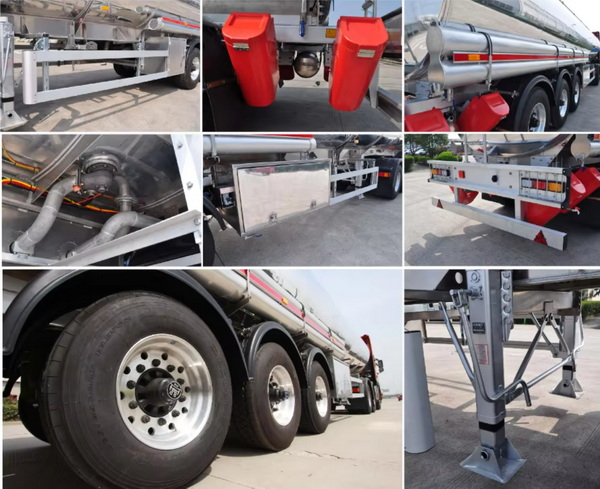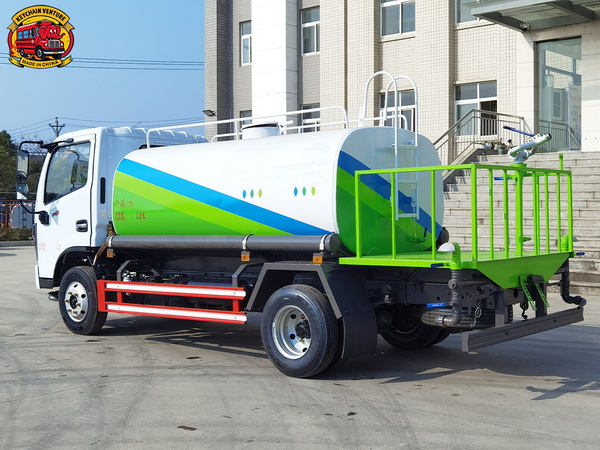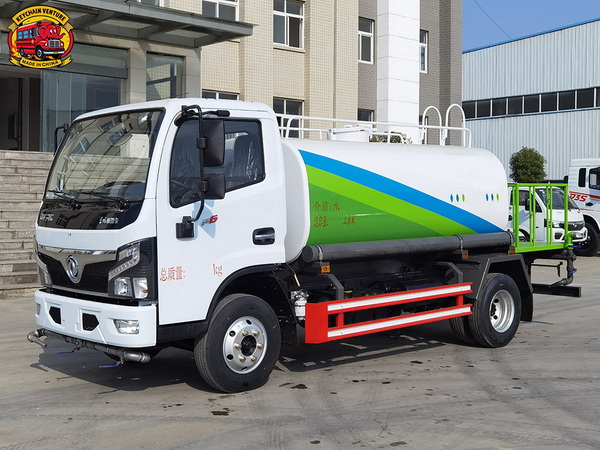Views: 222 Author: Amanda Publish Time: 2025-08-25 Origin: Site








Content Menu
● What Is a Water Truck Delivery?
● Factors Affecting Water Truck Delivery Cost
>> 2. Volume of Water Required
>> 3. Type and Size of Water Truck
>> 5. Regional Pricing Variations
>> 7. Site Accessibility and Conditions
>> 8. Water Quality Requirements
● Typical Price Range for Water Truck Delivery
● Benefits of Using a Water Truck
● How to Choose the Right Water Truck Delivery Service
>> Check Equipment Specifications
>> Review Experience and Reputation
>> Assess Customer Support and Flexibility
>> Request References or Case Studies
>> Check Insurance and Licensing
● Common Applications of Water Truck Delivery
>> Municipal and Roadwork Maintenance
● Tips for Reducing Water Truck Delivery Costs
● Frequently Asked Questions (FAQ)
>> 1. What is the standard water truck capacity?
>> 2. How long does a typical water truck delivery take?
>> 3. Can water trucks deliver potable water?
>> 4. Is water truck delivery environmentally friendly?
>> 5. How can I estimate the cost of my water truck delivery?
The demand for high-quality water truck services continues to rise, especially in construction, mining, agriculture, and municipal projects. If you are considering hiring a water truck delivery, understanding the factors influencing cost is essential to make a sound financial decision. This comprehensive guide covers everything you need to know about water truck delivery pricing, including key cost drivers, typical industry rates, benefits, and tips to optimize your expenses.

A water truck delivery refers to the transportation and dispensing of large quantities of water using specialized trucks equipped with tanks typically ranging from 1,000 to 5,000 gallons capacity. These trucks serve diverse purposes such as dust suppression, soil compaction, fire control, and irrigation, especially in locations where direct water access is unavailable or impractical.
Water trucks are engineered for durability and efficiency, outfitted with powerful pumps and spray systems that allow targeted water distribution. Their versatility and rugged build make them essential equipment for many industries, providing a reliable source of water in remote or demanding environments.
The cost of a water truck delivery depends on several variables. Knowing how these factors impact pricing enables customers to plan and budget more accurately.
The farther the water truck has to travel from the water source to the delivery site, the higher the overall cost. Transportation fuel, driver time, and vehicle wear increase proportionally with distance. Longer distances might also require additional permits or route planning, adding to operational expenses.
Water trucks charge based on the volume of water delivered, usually measured in gallons or cubic meters. Larger volumes require bigger tanks or multiple trips, affecting pricing directly. Projects with recurring or heavy water needs may benefit from volume discounts or negotiated contracts.
There are different types of water trucks optimized for specific industries – from small trucks convenient for landscaping jobs to heavy-duty trucks used in mining or highway projects. Each type has different operational costs reflected in the delivery price. Larger trucks with higher capacity or specialized features such as pressurized spray systems typically cost more to operate.
Some delivery contracts may include specialized services such as dust control spraying, water pressurization, or customized delivery schedules, all adding to expenses. For example, dust suppression often requires specialized spray nozzles and trained operators, increasing labor and equipment costs.
Regional supply and demand, access to water sources, and local regulations influence costs substantially across different geographic locations. Areas experiencing drought or water shortages may have higher pricing due to scarcity, while regions with abundant water supply and competitive providers may offer more economical rates.
Water truck delivery costs can fluctuate seasonally. For example, demand tends to rise in dry and hot months, leading to potentially higher prices. In contrast, off-season periods may offer better rates due to lower demand, so scheduling deliveries accordingly can reduce costs.
Difficult-to-access or hazardous sites may require specialized equipment or longer loading and unloading times, impacting the final cost. Remote locations or sites with poor roads may necessitate four-wheel-drive trucks or additional on-site labor, increasing expenses.
The intended use of the water influences pricing. Potable or treated water needed for drinking or sanitation purposes involves additional treatment and testing costs. Non-potable water for dust control or irrigation is generally less expensive.
While pricing varies widely based on the above factors, here are common industry price estimates to expect:
- Short-distance small volume deliveries: $100 to $250 per load (1,000-2,000 gallons)
- Mid-range deliveries: $250 to $600 per load depending on volume and distance
- Heavy-duty or specialized services: $600+ per delivery, especially for commercial or industrial projects
Most companies also offer hourly rates ranging from $75 to $150 per hour, depending on equipment and service complexity. Additional fees may apply if the delivery requires waiting time, overtime, or specialized permits.
Understanding the pricing structure enables customers to assess different vendor proposals accurately and choose a solution that fits their budget without compromising service quality.

Hiring a water truck delivery offers several advantages beyond simply accessing water on site:
- Reliable water supply: Access consistent and controlled volumes of water exactly where required, avoiding disruptions in operations.
- Time and labor saving: Automates water transport and distribution, freeing manpower for other projects and improving overall efficiency.
- Environmental compliance: Helps control dust and erosion, reducing regulatory risks and contributing to safer work environments.
- Versatile usage: Supports site cleanup, fire protection, irrigation, and construction activities across various sectors.
- Improved safety: Reduces the need for manual water handling, minimizing slip hazards and accidents on site.
Water trucks often come equipped with customizable spray heads and adjustable pressure settings, allowing tailored water delivery that meets specific project requirements.
To ensure cost-efficiency and service quality, consider these pointers when selecting a water truck provider:
Select a provider with water trucks that fit your volume needs and site terrain. Tank capacity, pump pressure, and spray nozzle types matter. It's important to confirm that the trucks meet local safety and environmental regulations.
Choose companies with proven expertise in your industry segment, such as construction, mining, or agriculture. Experienced providers can offer technical advice and flexible solutions tailored to your project.
Clarify whether pricing is per load, hourly, or contract-based. Request detailed quotes and inquire about hidden fees such as disposal charges or environmental permits. Transparent pricing prevents unexpected costs.
A responsive team can accommodate last-minute changes and emergencies effectively. Good communication translates to smoother operations and fewer delays.
Ask for evidence of previous successful projects relevant to your requirements. Testimonials and case studies provide insight into a company's reliability and service quality.
Ensure the water truck company holds appropriate insurance coverage and licenses, safeguarding you from liability related to accidents or damages during delivery.
Water trucks are versatile and crucial across many industries, including:
Used for dust suppression, soil compaction, and providing a water source where hoses or pipelines are impractical. Water trucks enable compliance with environmental regulations while maintaining operational efficiency.
Essential for dust control on haul roads and equipment washing purposes. Effective dust suppression improves air quality and worker safety.
Water trucks help irrigate large or remote fields where permanent irrigation infrastructure is unavailable. They also provide emergency watering during dry spells, supporting crop health.
Support road construction projects with water for compaction and cleaning. Water trucks facilitate smoother road finishes and reduce airborne particles.
In firefighting or disaster relief scenarios where access to water is limited, water trucks play a vital role in containment efforts. Their mobility and capacity help protect lives and property.
Water trucks provide irrigation for large landscapes and temporary water supply for outdoor events or festivals, ensuring greenery and comfort for participants.
- Schedule deliveries during off-peak hours to avoid surcharges and reduce waiting times.
- Consolidate water needs to reduce trips or negotiate bulk volume discounts for recurring projects.
- Work with local suppliers to minimize hauling distances which directly impact cost.
- Leverage long-term contracts for cost stability and potential price breaks.
- Ensure timely site preparation to avoid wasted truck time waiting on site, which can incur additional hourly charges.
- Communicate precise water needs upfront to avoid overestimation and excess charges.
- Consider combining water truck delivery with other site services offered by providers, possibly qualifying for package discounts.
- Maintain clear records of deliveries and usage to optimize future purchasing decisions.
- Stay informed about regional regulations that might affect water sourcing and disposal costs.
Understanding water truck delivery costs requires thorough evaluation of multiple factors including delivery distance, volume, truck type, seasonal demand, and site conditions. While typical prices range from several hundred to over a thousand dollars per delivery depending on complexity, customers can manage and reduce expenses through informed decisions and strategic planning.
Professional water truck suppliers like KeyChain Venture Co., Ltd. provide reliable, efficient, and customizable water solutions that meet diverse industry needs—from construction and mining to agriculture and emergency services. By selecting the appropriate equipment and negotiating clear contracts, businesses ensure smooth operations with cost-effective water delivery tailored to their unique projects.

Most commercial water trucks range in tank capacity from about 1,000 to 5,000 gallons, with variations depending on truck size and industry application. Some specialized trucks may carry more or less depending on operational requirements.
Delivery duration depends on volume, distance, and site conditions but usually ranges between 1 to 4 hours from loading to discharge. Complex site conditions or additional services like spraying can extend delivery times.
Yes, with proper sanitation and certification, some water trucks are designed to deliver potable water for drinking and sanitation purposes. Potable water deliveries require strict adherence to health regulations and clean water tanks.
Water trucks help control dust and soil erosion, which benefits the environment; however, fuel use and emissions depend on vehicle type, maintenance, and operational practices. Operators are increasingly adopting eco-friendly engines and efficient route planning to minimize impact.
Request quotes from multiple vendors detailing tank size, distance, volume, and any additional services to compare pricing accurately. Providing clear project parameters will help suppliers give precise estimates and avoid surprises.